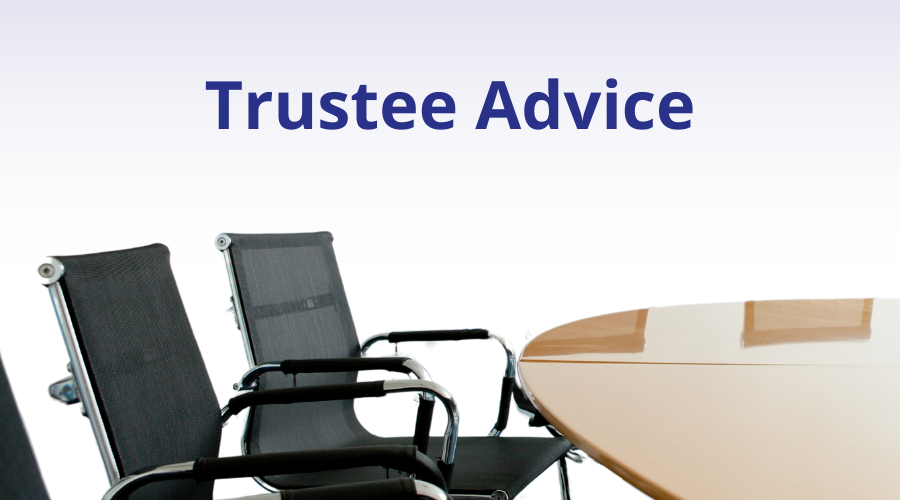
Quick CV Dropoff
Want to hear about the latest non-profit and public sector opportunities as soon as they become available? Upload your CV below and a member of our team will be in touch.

Do you have an interview for a Trustee role coming up? Firstly, that's great news - can we offer our congratulations!
We've put together some 'Trustee Interview tips' to help guide you.
We appreciate you may find some of the below obvious, but we hope it can be used just as a prompt to aid your preparation.
Are you thinking about becoming a Trustee?
Trustees work in the best interests of their charities, and although not involved in the day-to-day running, they are responsible for making sure their charity is doing what it was set up to do. In this sense, Trustees have overall control of their charity – meaning their vision for the charity, and the skills they bring to making this vision a reality, can significantly impact the charity's ability to meet its goals.
The following six legal duties are taken from the Charity Commission's core guidance - The Essential Trustee: what you need to know, what you need to do:
The best advice we can give is treat and prepare for the interview as if you would for any paid role.
In most cases, it's possible to have a pre-chat with a member of the Board or CEO to gain extra information and support preparation, we can arrange this for you.
The charity's website is obviously the first port of call for information and will include strategy details, but they would also expect you to have looked at the charity commission website for further details on them.
Charity overview:
Governance:
It's also a good idea to Google them and see if there are any recent press articles or extra info on them.
Different nomination committees will interview in different ways. In general, though, it's advised to prepare for competency-based questions.
Please note a key focus for any board is around risk/governance – it's important you have thought about this and prepared an example. It's also important that you have thought about any challenges they're facing.
If you're bringing a specialism to the Board, i.e. Fundraising, make sure you've looked into their current fundraising activity; what they're doing well, where they could improve, thought about how your fundraising experience can add value, think about relevant examples of successful campaigns you've worked on that can demonstrate this.
To give you an idea of questions the interview panel might ask and what they're looking for in response, here are some examples as a guide:
Can you tell us a bit about your background and what attracted you to this role? Why this charity? Why now?
Looking for: Relates background to the role, draws out relevant skills. Understands the work of the charity and the role of Trustee. Energised about the work of the charity.
What personal qualities do you think make a really good Trustee – and which personal qualities do you feel you would bring to the role?
What particular skills do you feel you would bring to this role?
Looking for: Has read and understood the role description. Has reflected well on their own skills and qualities. Self-awareness. Also, a chance to share other skills which may not have been in the person specification but which could be useful.
What experience of collective leadership do you have (either as a Board member or otherwise)? What role did you play in the team?
Looking for: Is comfortable with collective responsibility and decision making. Can play a constructive role in a team setting.
Can you describe a time where you have contributed to a challenging meeting or a group discussion? What approach did you take? How effective was it?
Looking for: Listens to others, contributes, assertive rather than aggressive, moves the conversation forward, achieves the best outcome.
Based on your understanding of the organisation and the role of Trustee, what do you understand may be the biggest risks and opportunities facing our organisation, or opportunities?
What role do you see the Trustees having in facing those challenges and opportunities?
Looking for: Has researched the charity. Understands the role of Trustee, e.g. leadership, strategic not operational, has read the role description. Can balance risk and opportunity.
Please imagine this scenario: The CEO presents an option to the Board that you really like, but that the rest of the Board think it is too risky and want to reject it. Please talk us through how you might deal with that situation.
Looking for: Ability to think creatively and strategically, exercise good, independent judgement, and work effectively as a board member.
Our Board of trustees meets 5 times a year for half a day – either remote or in person in our head office in XXXX, and in addition, you may be asked to join a sub-committee and attend 2-3 extra ad hoc meetings a year. Outside of this, Trustees will need to allow time to read Board papers and prepare for meetings. There may also be occasional events to attend.
How comfortable are you with these commitments? Is any of this likely to cause you difficulty? Is there anything we could do to make the commitment more manageable for you?
Looking for: Understands the commitment required. Can practically meet the commitment required.
What, if any, training, support, or development do you feel you may need to fulfill this role to the best of your abilities?
Aim is to make the organization aware of training and development you may need (all candidates are going to need some form of development, with a good induction, of course, being the starting point).
Please read our blog: Why become a Trustee?
Over the years, we've supported many people find their Trustee role, and we want to support you too.
We're available to speak to any time to offer support, advice, or if you just want a chat, just call Lisa, Emma, or Matt on 0207 198 6060 or email at executive@tpp.co.uk.